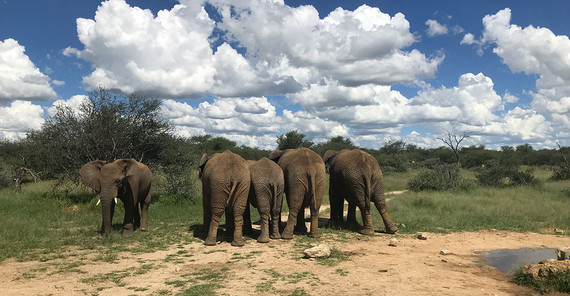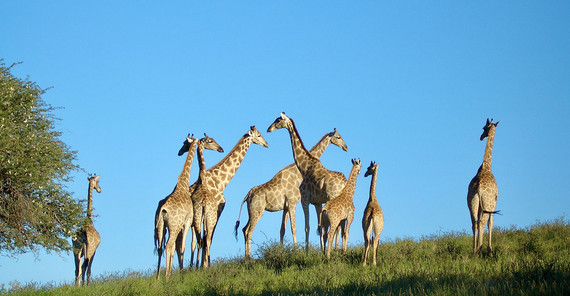Human behaviour changed dramatically during lockdowns in the first months of the global COVID-19 pandemic, resulting in behavioural changes of land mammals. Wild mammals travelled longer distances and occurred closer to roads during strict lockdowns. This is according to a study published in “Science” by a large international research team led by Marlee Tucker from Radboud University.
Tucker and 174 colleagues analysed global data from land mammals tracked by GPS devices. They collated data from the movements of 43 different species of land mammals from around the world. In total, more than 2,300 individuals were included: from elephants and giraffes to bears and deer. The researchers compared the mammals' movements during the first period of lockdowns, from January to mid-May 2020, with movements during the same months a year earlier. They observed that during strict lockdowns, animals travelled up to 73 percent longer distances in a period of 10 days than the year before with no lockdowns. In addition, animals occurred on average 36 percent closer to roads than the year before. Niels Blaum, ecologist at the Plant Ecology & Nature Conservation group of the University of Potsdam, says: “Interestingly, during lockdowns animals stayed significantly closer to roads in areas with a high human footprint than to roads in remote areas.”
There are several explanations for these results: there were fewer people outside during strict lockdowns and roads were quieter, giving animals the opportunity to explore new areas. In contrast, in areas with less strict lockdowns, animals travelled shorter distances, maybe due to the fact that people were encouraged to go into nature during lockdowns. In summary, the study showed that making adjustments to human behaviour could have a positive effect on animals, because they obviously can respond directly to changes in human behaviour.
Link to Publication: Marlee A. Tucker, Aafke M. Schipper, Tempe S. F. Adams, Nina Attias, Tal Avgar, Natarsha L. Babic, Kristin J. Barker, Guillaume Bastille-Rousseau, Dominik M. Behr, Jerrold L. Belant, Dean E. Beyer, Jr., Niels Blaum et al. & Thomas Müller Science 2023 https://www.science.org/doi/10.1126/science.abo6499
Image 1: Elephants in the african savannah. Image Credit: Niels Blaum.
Image 2: Giraffes in the african savannah. Image Credit: Niels Blaum.
Contact:
PD Dr. Niels Blaum, Institute of Biochemistry and Biology
Tel.: +49 331 977-1959
E-Mail: blaumuuni-potsdampde
Media Information 09-06-2022 / Nr. 060


